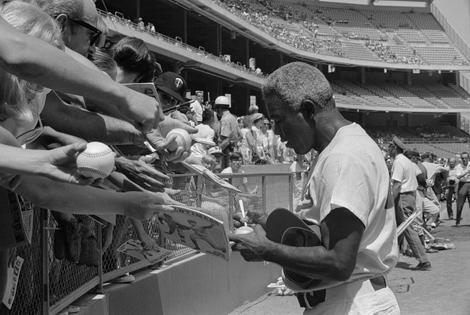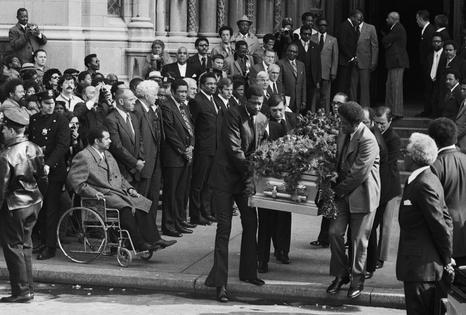Did racism kill Jackie Robinson?
Published in Health & Fitness
Baseball great Jackie Robinson was a living, breathing example of athleticism and apparent good health, playing four sports at UCLA and becoming the first Black man to play in major league baseball.
And yet, the athletic hero and civil rights champion died at age 53, almost blind, from a heart attack, with underlying diabetes and associated complications.
When Robinson died on Oct. 24, 1972, few researchers studied health disparities. There was little understanding that social factors and stress greatly affect health, and that racism and discrimination contribute to poor health outcomes among communities of color. Fewer people paid attention to racial and ethnic gaps in life expectancy.
Since Robinson’s death, however, research has shown that enduring structural and everyday racism can have serious negative consequences for health.
We are researchers who examine mental and physical health disparities in marginalized populations. We can’t help but wonder: Did racism kill Jackie Robinson? And might his life – and early death – help people understand the mechanisms behind how racism kills?
Robinson was born Jan. 31, 1919, in Cairo, Georgia, a small town not far from the Florida-Georgia line. Robinson’s father, a sharecropper, abandoned the family when Robinson was a baby. His mother, a housekeeper, moved her five children to Pasadena, California to be near her brother.
Robinson went to Pasadena Junior College and later to UCLA, where he became the school’s first four-letter athlete. His wife, Rachel, would later say he was a “big man on campus.” Yet the big man was not destined to be a graduate; he had to drop out of college due to lack of finances.
Jim Crow still had control in much of the country, but in Brooklyn, Branch Rickey, general manager of the Brooklyn Dodgers, believed it was time to integrate baseball. In 1946, Rickey signed Robinson to play for the Montreal Royals, a Dodgers farm team. Robinson was a star, and Rickey called him up. In 1947, at age 28, Robinson became the first Black American to play in the majors.
Robinson was Rickey’s choice not only because of Robinson’s prowess on the diamond but also because of his strength of character off the field. Yet Rickey warned him it would not be easy. Robinson would be insulted and reviled, Rickey told him, but Robinson could not speak out. He would have to endure whatever insults came his way.
They weren’t just verbal. Some players intentionally slid into his legs with their cleats. He had to have metal plates sewn into his cap to protect him from “beanballs” – pitches intentionally aimed at a batter’s head. Fastballs hurled from the arm of a major league pitcher can be traumatic and result in concussions, broken bones, severe bruising or death.
...continued











Comments